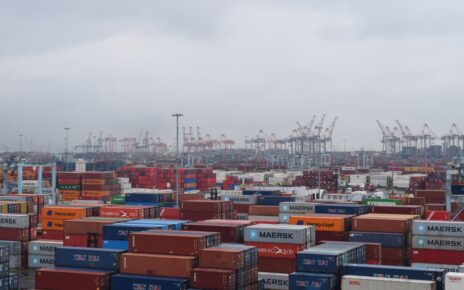Best Practices in Maritime Logistics. Maritime logistics is the process of planning, implementing and controlling the flow of goods and materials across the sea. It is a vital component of global trade, as about 80% of the world’s merchandise is transported by sea. However, maritime logistics also faces many challenges and risks, such as cyberattacks, environmental pollution, safety hazards, regulatory compliance and operational efficiency. Therefore, it is important for maritime companies to adopt best practices to mitigate these risks and improve their performance.
Some of the best practices in maritime logistics are
– Identify the threat environment and vulnerabilities of onboard systems. Cyberattacks can compromise the security and functionality of critical systems, such as navigation, communication, propulsion and cargo management. Maritime companies should conduct regular assessments of their cyber risks and implement appropriate measures to protect their systems from unauthorized access, manipulation or disruption.
– Comply with environmental regulations and reduce emissions and pollutants. Maritime transport contributes to about 3% of global greenhouse gas emissions and also generates other pollutants, such as sulphur oxides, nitrogen oxides and particulate matter. Maritime companies should follow the international and regional regulations, such as MARPOL, EU MRV, IMO DCS, UK MRV and CII, to monitor and report their emissions and fuel consumption. They should also adopt low carbon fuels, such as liquefied natural gas (LNG), biofuels or hydrogen, and use energy-efficient technologies, such as wind-assisted propulsion or solar panels.
– Ensure crew safety and health and promote a safety reporting culture. Human error is one of the main causes of maritime accidents, which can result in injuries, fatalities, property damage or environmental harm. Maritime companies should ensure that their crew members are competent, trained and healthy. They should also encourage them to report any safety issues or incidents without fear of retaliation or blame. A positive safety culture can enhance the awareness and prevention of risks and improve the learning and improvement of safety performance.
– Use best-in-class fleet management software to improve operational efficiency and visibility. Fleet management software can help maritime companies to optimize their fleet operations, such as route planning, voyage execution, fuel management, maintenance scheduling, cargo tracking and document management. It can also provide real-time data and analytics to support decision-making and performance evaluation. Fleet management software can also facilitate communication and collaboration among different stakeholders in the maritime supply chain, such as shipping lines, terminal operators, cargo owners and inland transport providers.
– Conduct systematic documentation of audits, inspections and risk assessments. Audits, inspections and risk assessments are essential tools to ensure compliance with various standards and regulations in the maritime industry, such as ISM Code, ISPS Code, SOLAS Convention or MLC Convention. They can also help to identify gaps and weaknesses in the management systems and processes and recommend corrective actions or improvements. Maritime companies should maintain proper records of their audits, inspections and risk assessments and follow up on their implementation.
These are some of the best practices in maritime logistics that can help maritime companies to overcome the challenges and risks they face and enhance their competitiveness and sustainability in the global market.



